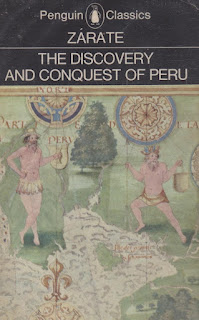Fidel Castro is dead.
As the champions of democracy celebrate and the advocates of freedom throw a party, let me try to figure why I feel sad at his passing.
I've always been a leftist liberal. So while I took in a lot of leftist romantic stories on revolutions and the notions of wealth in the erstwhile Soviet Russia and China, I was cured of those about 15-16 years back. I became a cog in the great Capitalist wheel, which churns to deliver freedom to the West and pretty much throws everyone else under the bus.
So, Fidel and Che, along with Lenin, Trotsky and the people of Soviet Russia used to be the biggest heroes of life. They are not just action heroes who helped establish the dictatorship of the proletariat, they also proved that Communist/socialist experiments are possible and the Marxist philosophy works.
The bigger question was, at what cost? The human cost of these Marxist experiments run into millions, dead, sent to labor camps, missing etc. And the experiment failed in the case of Soviet Russia. While Socialism survives as a piece of relic in Western democracies, Communism beat a hasty retreat and now is a almost fringe philosophy.
While all these are part of the history of the past 25 years, what does the passing of Fidel, the last revolutionary signify? Does it mark the end of the old Communist ideology or the beginning of the newer left rise?
I do believe the Capitalist system as it exist today is unsustainable. The exploitation of resources, the imperial needs to maintain control over vast swathes of land, the tyranny of the individual over the society - all will slowly move the world towards a dictatorship of the Right. And that is not a sustainable path for the 99% people of the world.
However, I do not think revolution will come through as well. The youth of this country and the developing/developed worlds were thoroughly castrated to even think on their own and the kind of things they believe makes any revolution, not just impossible, almost a joke. Wearing a beret and a Che t-shirt is a fashion statement today than an ideological belief.
So what is the path forward? I do believe there is a reason why Bernie Sanders did well. He lost but in the larger scheme of things, this points to the kind of Socialist path the world should work towards to achieve any sense of justice towards its people. I do believe that the right, conservative ideology will bring large scale destruction, like it has done multiple times in the past, across the world and the salvation lies in the center-left, socialist path.
Fidel may not have liked the center-left. But the world he inhabited has passed on and the Marxist ideology needs to re-invent itself for it to be successful.
As the champions of democracy celebrate and the advocates of freedom throw a party, let me try to figure why I feel sad at his passing.
I've always been a leftist liberal. So while I took in a lot of leftist romantic stories on revolutions and the notions of wealth in the erstwhile Soviet Russia and China, I was cured of those about 15-16 years back. I became a cog in the great Capitalist wheel, which churns to deliver freedom to the West and pretty much throws everyone else under the bus.
So, Fidel and Che, along with Lenin, Trotsky and the people of Soviet Russia used to be the biggest heroes of life. They are not just action heroes who helped establish the dictatorship of the proletariat, they also proved that Communist/socialist experiments are possible and the Marxist philosophy works.
The bigger question was, at what cost? The human cost of these Marxist experiments run into millions, dead, sent to labor camps, missing etc. And the experiment failed in the case of Soviet Russia. While Socialism survives as a piece of relic in Western democracies, Communism beat a hasty retreat and now is a almost fringe philosophy.
While all these are part of the history of the past 25 years, what does the passing of Fidel, the last revolutionary signify? Does it mark the end of the old Communist ideology or the beginning of the newer left rise?
I do believe the Capitalist system as it exist today is unsustainable. The exploitation of resources, the imperial needs to maintain control over vast swathes of land, the tyranny of the individual over the society - all will slowly move the world towards a dictatorship of the Right. And that is not a sustainable path for the 99% people of the world.
However, I do not think revolution will come through as well. The youth of this country and the developing/developed worlds were thoroughly castrated to even think on their own and the kind of things they believe makes any revolution, not just impossible, almost a joke. Wearing a beret and a Che t-shirt is a fashion statement today than an ideological belief.
So what is the path forward? I do believe there is a reason why Bernie Sanders did well. He lost but in the larger scheme of things, this points to the kind of Socialist path the world should work towards to achieve any sense of justice towards its people. I do believe that the right, conservative ideology will bring large scale destruction, like it has done multiple times in the past, across the world and the salvation lies in the center-left, socialist path.
Fidel may not have liked the center-left. But the world he inhabited has passed on and the Marxist ideology needs to re-invent itself for it to be successful.










